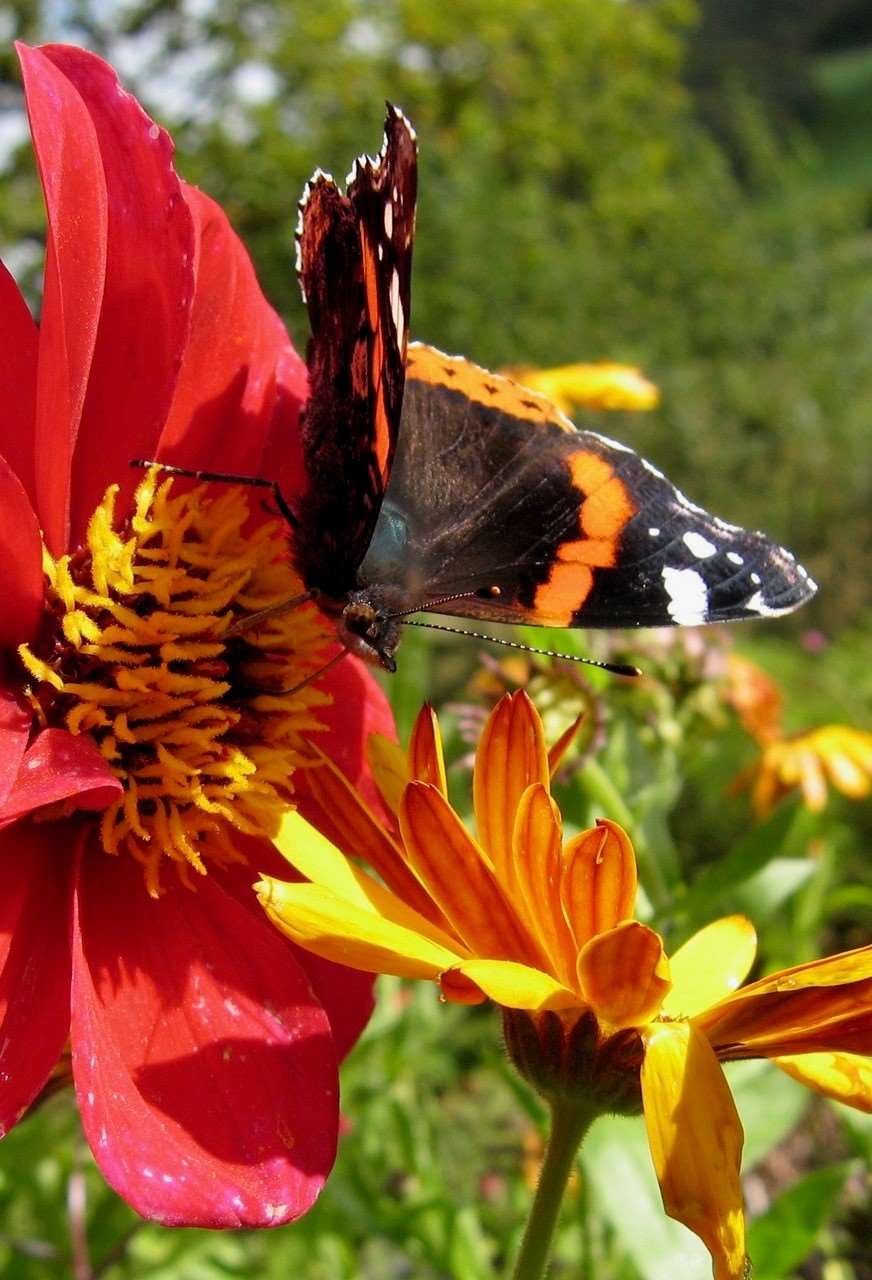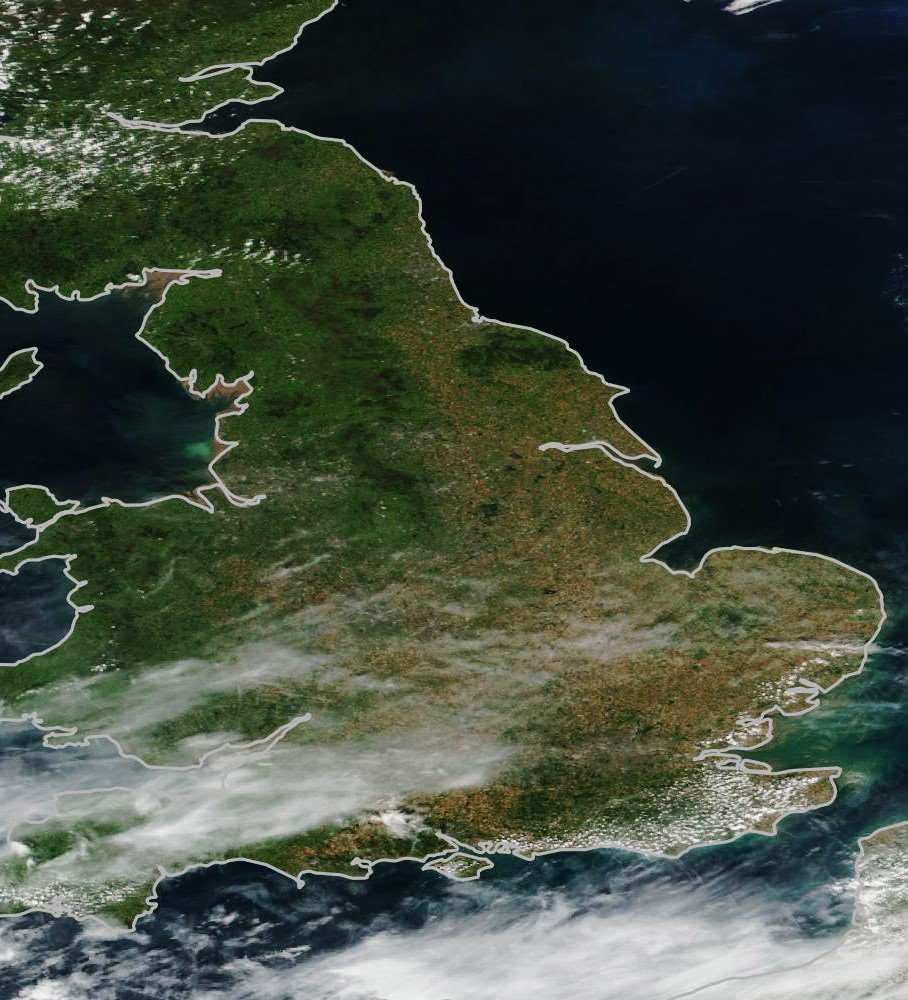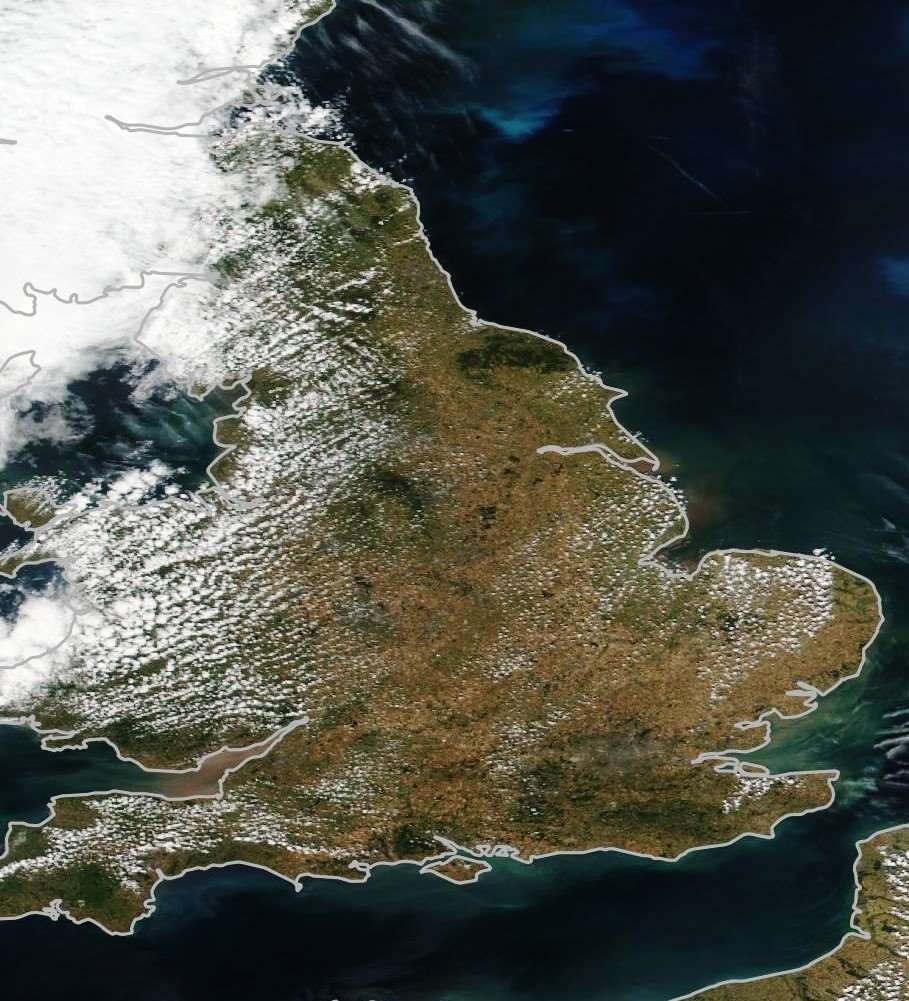We are living in a global greenhouse, but our garden media is still cool on climate breakdown, and even cooler on its causes. It’s time to cultivate some candour.
Mine ought to be amongst the most joyous, stress-free jobs in the world: days spent waxing away with words about the satisfaction, enrichment and contentment that gardening brings into our lives (not to mention the food). Heaven, right? And, of course, it is. I do OK most of the time. But then there are days like this, when my key-tapping efforts are dogged by a leadenness, an inner unease that I can’t shake off. It’s not writer’s block, exactly… more writer’s despair.

It wouldn’t strike so badly if I could detect any hint that my fellow gardening communicators were experiencing it too. But I don’t. Yes, I occasionally sense, reading between their lines, faint traces of buried, hand-wringing angst. But most discussions and debates around environmental concerns, seen through a gardening lens, end up as mere damp squibs. Our gardening media is notorious for applying the biggest dampeners of all – whether it’s an ultra-edited, softened-up article designed to inform no one, nor upset anyone (certainly not big business), or a wishy-washy, self-interested ‘celebrity expert’ paying lip service (often accompanied by a titter or two) to the compounding problems facing our natural world. With fame – even in the gardening world – comes comparative riches, bound tightly to a masterclass in the tedious art of hedging one’s bets. There’s scant indication that responsibility also comes with the job.
Unencumbered by either fame or, alas, riches, I am able to be upfront and honest about how things are, and for me, this is the best way to cut through my writer’s despair. It always works; I’m perking up already. Gloom pruned away, I can wheelbarrow it off to composting heaven.
We can always spot the important gardening topics, the ones we really should be deliberating – those with serious repercussions for our natural world – by how little we see, read or hear about them. No topic is bigger, yet receives such a small amount of attention in the gardening sphere, than climate breakdown. Reading, watching or listening to gardening’s output on the subject reminds me of how we’ve mastered the example of the three wise monkeys: don’t see, hear or speak about climate chaos – unless you absolutely have to. And if you do, steer sharply toward how stoic gardeners are going to cope as it bites – and well away from what they could do today to soften and mitigate its impacts beyond their own garden fence. Stick to the safe, controversy-free zone.
I’ve been writing about gardening and climate breakdown since 2006 (I did say my job was joyous). Back then I called it ‘change’ like everyone else, but that’s too tame nowadays. Every year since, I’ve been waiting for serious, honest discussions to germinate around how we as gardeners should respond – collectively and globally – in helping to cool our febrile climate, and slow the punches our increasingly extreme weather throws. Apart from a few honourable exceptions, I’ve been left wanting. Some gardening faces do occasionally make a decent stab at it, but most slip and slide, choosing the comfier path of waffling on about adaptation, avoiding the altogether bumpier, yet ultimately more candid one of talking about mitigation. Gardening debate seems peculiarly focused on pain relief, rather than on taking steps to reduce the severity of what’s causing the agony in the first place. Masochistic gardening, or what?

To a degree, it’s understandable. If your career is built around being a handsomely rewarded media somebody, you’re unlikely to want to give that, or its trappings, up; being a ‘name’ in the gardening world is where most of the big money is. So a measured, circumspect approach is essential. Caution – caginess, even – rules. ‘Will I pass the hypocrite test?’ haunts you constantly. Honesty is fine, but keep it at arm’s length. Balance – that’s the way to go!
The inevitable result is that those with the biggest audiences, who might convey messages laced with candour, honesty, and a call to arms, are the ones least likely to broadcast them. It’s all fine and dandy for Z-listers like me to cajole my gardening kin into joining the dots on how the way we garden affects the wild, living world around us. In reality, few are listening. Myself and my fellow low-listers can only squeak. Others could roar.
‘But it’s only gardening, John! Stop fretting and enjoy it!’ could be your cry. Better to focus your efforts on stuff that can make a real difference, might be your sentiment. Here comes that despair again. The trouble is, I believe gardening can make a difference in helping – even if it’s only in a modest way – to make the future a little less worse than it’s shaping up to be. If the recent drought and extreme, record-breaking weather events across our planet haven’t got you sitting up, what will?
Perhaps the recent predictions from the Stockholm Resilience Centre on the risks of earth accelerating into a ‘hothouse’ state – even if carbon emissions were cut quickly and drastically – might move you? The scientists behind the report suggest that our collective actions in the next few decades will determine whether we set ourselves on a trajectory that leads to conditions that would ‘be inhospitable to current human societies and to many other contemporary species’. I challenge any present-day gardening ‘expert’ to offer advice on how tomorrow’s gardeners – if everyday life allows such luxuries as gardening – might adapt to that. There’s plenty of scope for offering advice on how gardening today can help cool down our tomorrows; a global greenhouse that gets uncomfortably warm, rather than becoming life-threateningly hot, is surely preferable.

My challenge to those gardening communicators who have the eyes and ears of thousands, if not millions, is that it’s time to get real on talking about climate breakdown (fellow Z-listers can join in too). Yes, I know, red lights are flashing at the idea. But it’s time to be bold, to talk mitigation rather than just adaptation, and to explain, compellingly, the difference – when and wherever you get the chance.
It’s time to ramp up the reasons why using peat-based compost is a plastic-wrapped environmental disaster (you could mention that plastic is made from oil, whose synthesis also drives climate breakdown). You could expound on how modern peat-free composts are used by some of the UK’s big and successful plant growers. Be honest.
It’s time to pep up the case for why synthetic chemical pesticides, weedkillers and fertilisers are bad not just for wild and soil life, but for our shared climate too; they’re manufactured from oil, using lots of energy. Be candid.
It’s time to show and talk about solid, practical ways we can all reduce energy consumption in our back gardens, especially if that energy comes from the burning of fossil fuels – the key driver of climate breakdown. Now, this is going to be tricky if you’ve just stepped off a return flight from an overseas garden design gig, or a garden tour-leading job. Or if you’re disembarking – having been the on-board entertainment – from a cruise liner. Lead by example – perhaps by saying no if you’re asked again.
It’s time to highlight the paltry state of public transport serving many of our most beloved, but wheels-only gardens; you might try travelling to some of them without using a car, then work out the ‘gardening miles’ you’ve avoided clocking up – and the pollution (air, noise) you’ve helped to curb. Be creative.
It’s time to start talking about how our gardens can act as ‘sinks’ for carbon, by exploring practical techniques (think no-dig) that help to sequester it safely away in the soil, rather than liberate it into our atmosphere (think digging). We need to hear about how there’s no ‘good’ carbon when it comes to our off-kilter climate – not even that generated by our gardening. Be inquisitive.
It’s time to wake up to the fact that if we gardeners – who are out there, up close and personal with a rapidly changing natural world – can’t get it, and talk about it straightforwardly and, if need be, bluntly, then who can? Be fearless; be plucky. Tomorrow’s gardeners will look back in gratitude. Today’s will gain insight and understanding, as you help them join up the dots.
It’s time for me to stop squeaking. I’ve been honest and upfront, saying what I think. It’s done the trick; I’m feeling more positive already. It’s over to you now, to help keep me from despair. Use your voice – I want to hear you roar.
Text and image © John Walker. Satellite images: NASA
Find John on Twitter @earthFgardener










